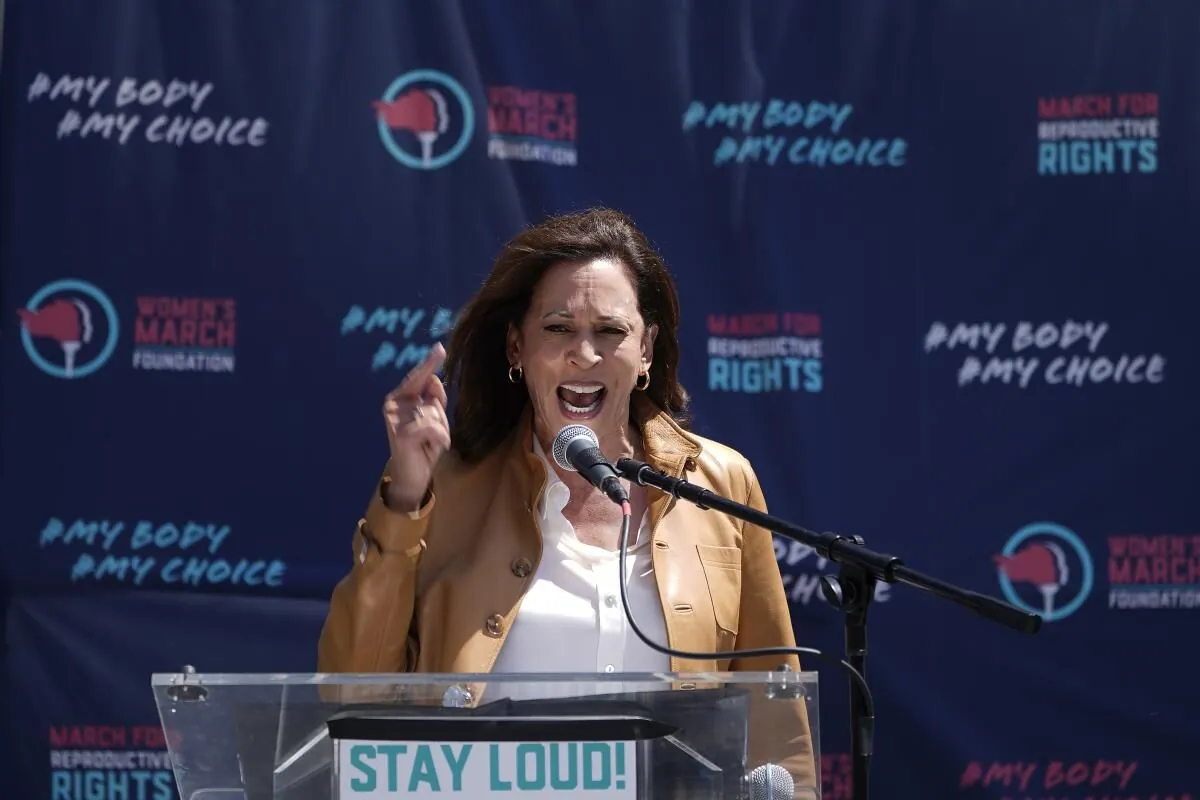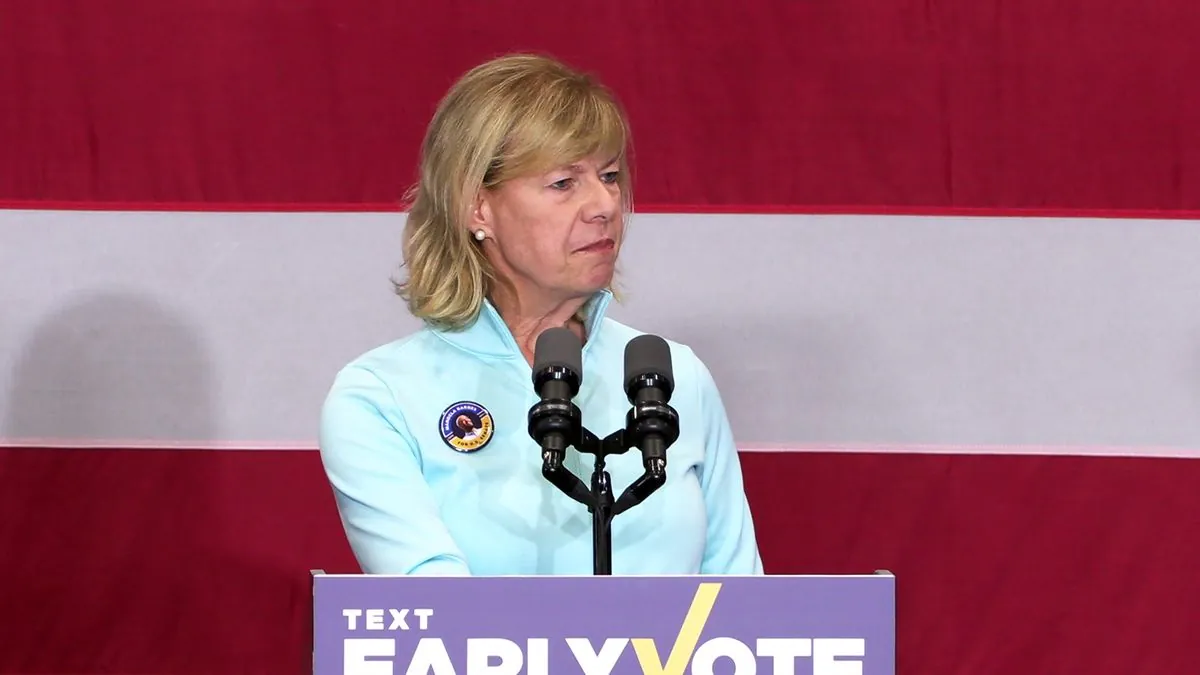Harris Backs Filibuster Removal for Abortion Rights Legislation
Vice President Kamala Harris advocates eliminating the Senate filibuster to codify abortion rights. She emphasizes the importance of Democratic control in Congress to achieve this goal.

Vice President Kamala Harris has expressed support for eliminating the Senate filibuster to enact legislation safeguarding abortion rights nationwide. This stance, articulated in an interview with Wisconsin Public Radio, marks a significant development in the ongoing debate over reproductive freedoms in the United States.
The filibuster, a procedural rule requiring 60 votes to advance most legislation in the Senate, has been a topic of contention since its first use in 1837. Harris, the first female, African American, and Asian American vice president in U.S. history, stated, "I think we should eliminate the filibuster for Roe." This statement aligns with her previous commitment to cast a tiebreaking vote on this issue if necessary.
The vice president emphasized the critical nature of the upcoming elections, urging voters to support candidates like Senator Tammy Baldwin of Wisconsin, the first openly LGBTQ+ person elected to the U.S. Senate. Harris stressed the importance of maintaining Democratic control in both chambers of Congress, a goal she believes is achievable.

The push to codify abortion rights into federal law has gained momentum since the Supreme Court's decision to overturn Roe v. Wade in 2022. This ruling ended a half-century of federal abortion protections that had been in place since the original 1973 decision. The overturning of Roe represents one of the more than 300 instances where the Supreme Court has reversed its own precedents.
In contrast to Harris's position, former President Donald Trump has claimed credit for the overturning of Roe, having appointed three of the justices who voted with the majority. Trump has suggested that abortion is no longer a pertinent issue, advocating for state-level decision-making on the matter.
The debate over abortion rights has a long and complex history in the United States. Abortion was first criminalized in some states as early as the 1820s, and the concept of reproductive rights wasn't formally articulated until the 1968 UN International Conference on Human Rights. Currently, the U.S. lacks a federal law guaranteeing the right to abortion, with restrictions varying widely by state.
Wisconsin's experience illustrates the complex legal landscape surrounding abortion rights. The state virtually banned abortions for over a year following the Supreme Court's 2022 decision. This ban was based on an obscure 1849 law, enacted just one year after Wisconsin achieved statehood. Abortions were reinstated in September 2023 after legal intervention by the state's attorney general.
"To actually put back in law the protections for reproductive freedom, and for the ability of every person and every woman to make decisions about their own body and not have their government tell them what to do."
The ongoing debate over the filibuster and abortion rights underscores the complex interplay between legislative procedures and fundamental rights. The current 60-vote threshold for the filibuster, established in 1975, has been a significant hurdle for passing controversial legislation. Interestingly, the term "filibuster" itself comes from a Dutch word meaning "pirate," reflecting its historical use as a tactic to obstruct legislative processes.
As the nation approaches the next election cycle, the issue of reproductive rights remains at the forefront of political discourse. The outcome of these elections could significantly impact the future of abortion legislation and the use of the filibuster in the Senate.


































